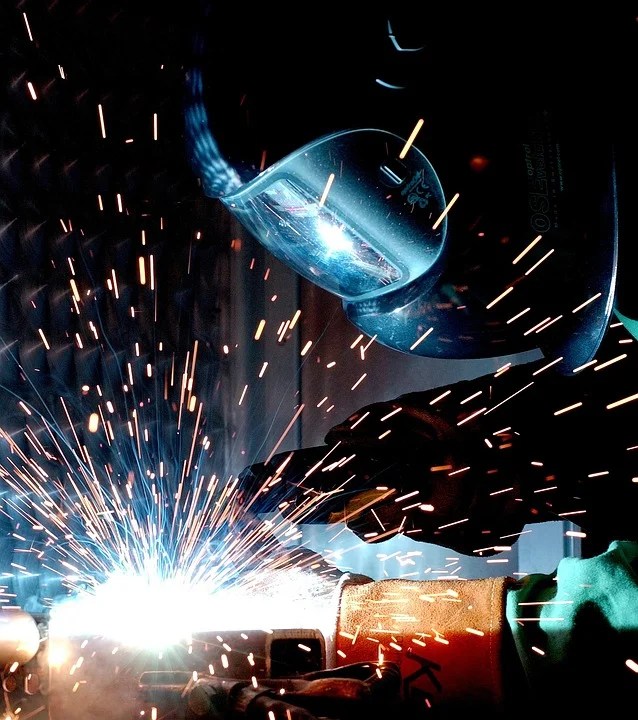There’s nothing quite like the satisfaction of creating things with your hands. And like any form of art, welding requires passion and skill. It’s not just something anyone can do without learning and practicing.
With the right welding tools, knowledge, and mindset, welding can easily become an easy task even for Tom, Dick, and Harry. There are a few things you should know about welding to help you get started:
Types of Welding Processes
Whether you’re learning how to weld as a hobby or as a profession, you must understand the different welding processes and their required welding machines. There are three common welding processes, with each having its own trump card and weak point: MIG, TIG, and Stick.
MIG and Stick welding are the easiest to learn and use, while TIG, being the most difficult, is more ideal in construction work. If you are eager to learn, you will be able to use the different welding tools in no time–from spot weld cutters to TIG welders!
Input Voltage
Every household is familiar with the types of voltages–230v and 110v. When it comes to welding, voltage is one of the most crucial variables. It determines how intense the heat of the welding tool is.
You will need a lower voltage for thinner metals, while thicker metals require a higher voltage. Remember, if you use higher than the required voltage for a specific metal, it can produce either a concave weld, flat weld, or undercut. You can also check out welding certification for more great options.
Consumables
A welder must install the consumables properly during welding for a smooth operation. Ensuring that there is a good flow in electrical current will help create a good quality weld. Consumables such as nozzles, diffusers, contact tips, and collet bodies should be set up securely and according to the manufacturer’s recommendation.
Any form of leakages that can cause accidents can be avoided when consumables are securely connected. As a novice welder, learning how to set up consumables properly is one of the most important steps toward becoming a successful welder.
Materials
Welding processes and consumables, in some cases, are ideal for welding specific materials. Other instances require an extra helping tool. To be more cost-effective, think ahead of the projects you will work on prior to purchasing a welder. Do you want to work on different metals such as aluminum, mild steel, or stainless steel in different thicknesses?
If you want to use aluminum, you can weld it by using the MIG process; but to feed the consumables, you will need a spool gun in order to achieve great results. So, if you want to get quality results in your weld, get the ideal welding machine.
Safety Measures
Whether you’re a novice or a professional welder, you should think of your safety first. Are you wearing the right protective gear, such as a welding helmet, safety glasses, welding gloves, and a fire-resistant jacket?
To avoid suffocation in the welding room, make sure it is properly ventilated. You may also use a fume extraction system. Avoid welding too close to flammable materials and ensure there’s enough space for the sparks to fly freely. Fumes are dangerous to your health, so make sure you position your head away from them when welding.
Cleanliness
Your welding surface should be clean to avoid any errors that could occur when welding. It’s also important to keep the workpiece clean because contaminants such as debris, dirt, grease, and oil can easily penetrate the weld pool, which can result in poor quality of the weld.
High-quality welds require not only good welding machines but also a good cleaning habit. It’s also worth noting that there might be different cleaning methods for different material bases.
Maintenance
No matter how rough your welding tools and machines look, they need some tender loving care. It’s important to know how to maintain them if you want to keep their efficiency and durability intact. You may ask the manufacturer how to keep the tools and machines in their best condition so that they can continuously perform at a high level.
To ensure you get quality results in your weld, inspect your entire welding system periodically, including the power source, connections, primary power line, and gas cylinders.
The Takeaway
In our modern society, welding is increasingly becoming the most useful skill. It is very beneficial to all of us since most of the technologies we use–from cars, and buildings, to gadgets–have metal elements; however, it’s not for everyone. Hence, it’s important to properly understand what welding entails.
As a novice welder, you have a lot to learn before you can carry out the job successfully. It’s also important to practice good welding habits early on, such as cleaning welding surfaces as well as the welding tools and machines. Doing so can help avoid mistakes in your welding process.

